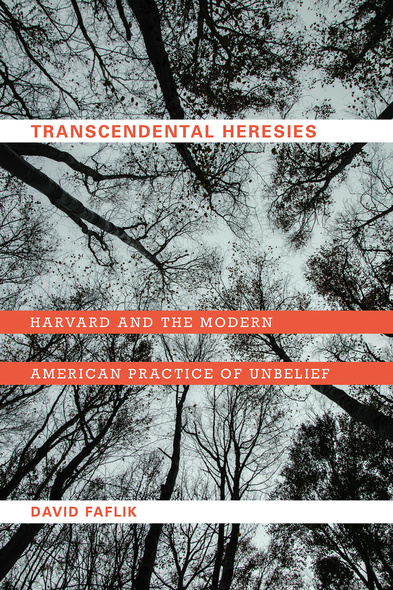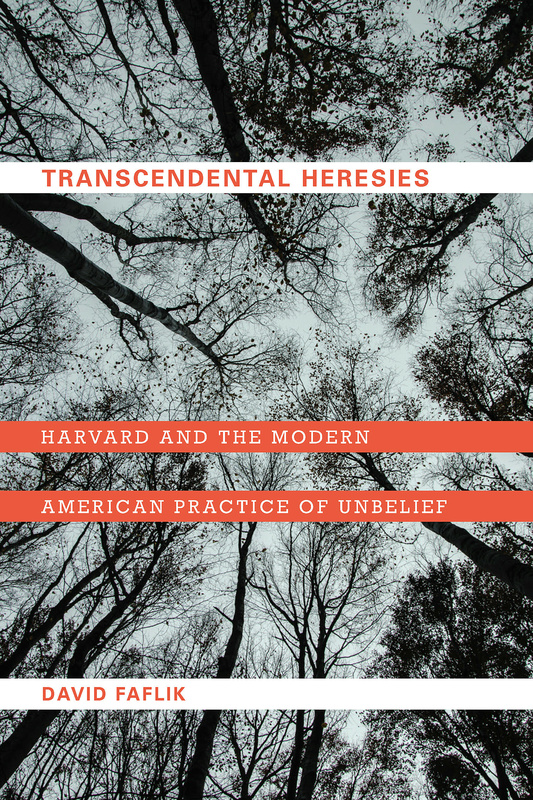
260 pages, 6 x 9
12 b&w illus.
Paperback
Release Date:29 May 2020
ISBN:9781625344892
Hardcover
Release Date:28 Apr 2020
ISBN:9781625344885
Transcendental Heresies
Harvard and the Modern American Practice of Unbelief
By David Faflik
University of Massachusetts Press
At a moment when the requirements of belief and unbelief were being negotiated in unexpected ways, transcendentalism allowed for a more creative approach to spiritual questions. Interrogating the movement's alleged atheistic underpinnings, David Faflik contends that transcendentalism reconstituted the religious sensibilities of 1830s and 1840s New England, producing a dynamic and complex array of beliefs and behaviors that cannot be categorized as either religious or nonreligious. Rather than "the latest form of infidelity," as one contemporary described it, adherents viewed their unconventional and distinct spiritual practices as a modern religion.
Transcendental Heresies draws on an expansive antebellum archive of period commentary and writings by transcendentalism's practitioners, including Ralph Waldo Emerson, Henry David Thoreau, Theodore Parker, Margaret Fuller, and the women of transcendentalism's second and third waves. From Boston to Concord to the heady environs of Harvard, the species of unbelief they practiced multiplied the religious possibilities of the era, expressing misgivings about traditional notions of divinity, flouting religion's customary forms, and ultimately encouraging spiritual questioning.
Transcendental Heresies draws on an expansive antebellum archive of period commentary and writings by transcendentalism's practitioners, including Ralph Waldo Emerson, Henry David Thoreau, Theodore Parker, Margaret Fuller, and the women of transcendentalism's second and third waves. From Boston to Concord to the heady environs of Harvard, the species of unbelief they practiced multiplied the religious possibilities of the era, expressing misgivings about traditional notions of divinity, flouting religion's customary forms, and ultimately encouraging spiritual questioning.
'Faflik has read widely, and intelligently, in both manuscripts and little-known periodicals to establish a wider interpretation of transcendentalism. This is a major advance in the field.'—David M. Robinson, author of Natural Life: Thoreau's Worldly Transcendentalism
'Transcendental Heresies largely succeeds in demonstrating the spiritual symmetries between leading-light Transcendentalists and ordinary New Englanders. It does so by integrating an impressive range of archival materials, including newspapers, diaries, drawings, sermons, pamphlets, broadsheets, and, yes, Harvard University records . . . His study should prompt future scholars to continue to seek out where and how Transcendentalism inspired and energized diverse, non-elite Americans.'—American Literary History
DAVID FAFLIK is professor of English at the University of Rhode Island and author of Melville and the Question of Meaning.




